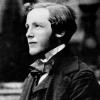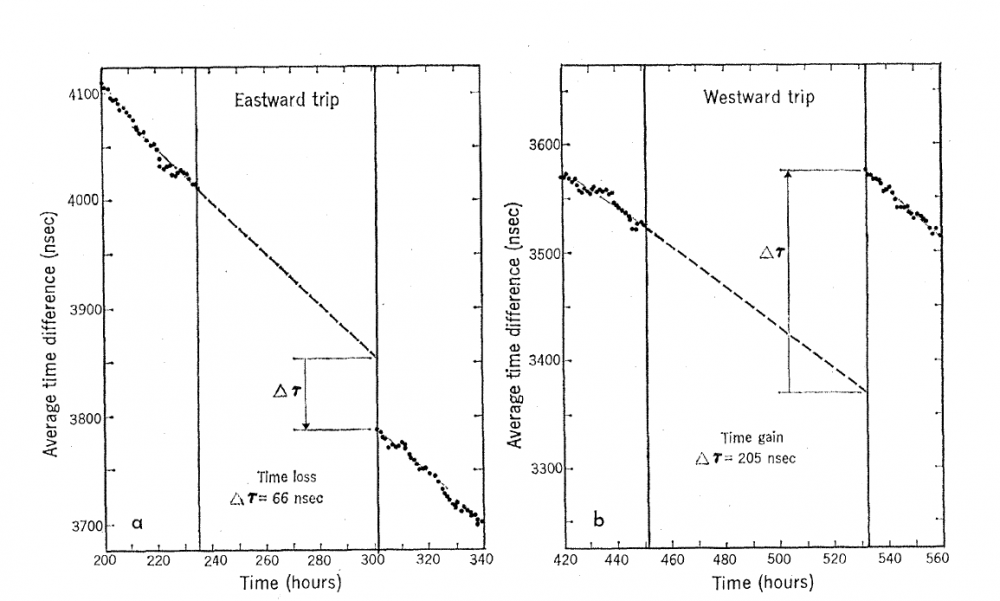Leaderboard
Popular Content
Showing content with the highest reputation on 10/29/21 in all areas
-
You have not successfully made the case that there is One True Definition. If two different dictionaries have two different definitions, how do you get to claim one is the standard and the other is not? On another subject, why do you think everyone is "willfully" rejecting what you claim to be the "standard" definition? Did anyone check to see if these people using the supposedly wrong definition were even aware there was a "standard" definition in the first place, and that it didn't match their definition? And further, how could a disagreement about word usage be unsettling? Is this disagreement disrupting the world order in some way?2 points
-
What purpose would it serve in modern philosophy? If it didn't appear 12th - 19th century European philosophy, that may have been because the Christian god was taken for granted - indeed, had to be taken for granted, because questioning his existence was subject to punishment ranging from social disapprobation to public execution. In the definition you cite, there is a nod to other religions (gods) that would not have occurred to a European philosopher in the 1700's - they were all more theologians than philosophers: their categorization of thought-systems was quite different from those of the ancient Greeks, their Asians counterparts and modern ethicists. The god(s) thing is an afterthought; none besides Jehovah and his two alter egos is seriously considered as objects of faith between 400AD and 1900AD. How do you know this? And why is it relevant? Is this accurate? I don't think philosophical reference books do stop at that skimpy definition. For instance, from the Stanford Encyclopedia of philosophy: It goes on to explore seven main aspects of the question in detail. The Oxford Companion to Philosophy has a short entry (by William Clifford) that reads, in part: So he's expressly putting atheism in opposition to one other belief, and not in any larger context. If theism is referred-to as a 'positive state', that reveals a fundamental bias - one that was prevalent in Eurocentric philosophy of the 19th and early 20th century. It places one single belief at the center of a world-view which is not further elaborated. But the seeds of dissent were present in the late 19th, and non-, as well as anti-religious thought surged in the second half of the 20th century. Euro-phil is liberated from the Christian doctrine by Bertrand Russell and his cohort, c 1930. One idea does not make a philosophy. A belief in gods, ghosts, Manifest Destiny, Justice, Fate, the Unity of all Things, dark matter or the Rules of Acquisition, is but one aspect of a world view, a basis for one's attitude to life, other life forms, the physical world, moral standards, social organization and the drafting of laws. A conscientious philosopher would not regard either the lack of belief or the denial - even the vehement denial - of a single proposition as an end in itself, but proceed to explore the conceptual worlds to which that proposition logically gives rise. Of course, in the past century and a half, quite a few philosophers have done so. Do most of the people you know, in cyberspace or walking life, describe their own conviction about anything in academic terms? I suspect your internet atheists describe themselves that way, because they have, at some point, broken with a religious dogma, but not troubled to build an entire philosophy of their own, and the 'activists' are referring to a particular political issue, rather than a fully formed world-view. They're limiting their definition to a specific issue or context.2 points
-
For me, it most closely aligns with my stance on the matter. In science, it's better to say "We don't know" rather than conclude something there's no evidence for. Since science deals with the natural world, and the concept of deities is a supernatural one, I think the scientific stance is to withhold any judgement until there's some evidence to analyze. Science doesn't have the tools to measure god(s) until they agree to become observable, predictable, and consistent.2 points
-
Hello guys, So it turns out that the definition of atheism as "lack of belief in god(s)" is almost non existent in the field of philosophy itself. In almost all the encyclopedia & dictionaries of philosophy and amongst philosophers and in academia the standard definition of atheism is " the belief/view that there is no god(s)" or put in another way "The proposition that God(s) do not exist." You can check Stanford encyclopedia of philosophy( one of the most cited encyclopedia of philosophy) Routledge encyclopedia of philosophy Internet encyclopedia of philosophy Encyclopedia Britannica some commercial url The oxford companion to philosophy oxford dictionary of philosophy Blackwell dictionary of western philosophy Cambridge dictionary of philosophy (the only dictionary to include the none-standard definition in a positive light but it itself holds to the standard definition as it's preferred one) and so on And it's what noting that the standard definition in this dictionaries/encyclopedias are written by atheist philosophers themselves. So amongst the vast majorities dictionaries of philosophy and within philosophical discourse itself, the standard definition is used. That I think begs the question why the vast majority of people on the internet and atheist activists still chose to insist that atheism is simply " the lack of belief in god(s)"? A definition that's almost none existent in academia itself.1 point
-
The problem is that your proposal, as interesting as it could be, is not supported by equations. This is more philosophy, not science....1 point
-
So a university student who studies some religion or other is being indoctrinated? Seems a bit of an overreach. Yes, probably. If you are not allowed to ask questions, are beaten for suggesting something else, then that certainly seems like indoctrination. Perhaps. But then I was probably also indoctrinated into a life of hard work, preferring soccer over tennis, manners, and dressing conservatively. "Indoctrination" loses its meaning if it is applied too broadly.1 point
-
How is it even remotely off topic? It's exactly the type of arguments Petersen has made, with his detractors claiming they are fallacious slippery slope arguments. Petersen from a debate on political correctness: "Well, I guess I would like to set out a challenge in somewhat the same format as Mr. Fry did, to people on the moderate left. I’ve studies totalitarianism for a very long time, both on the left and on the right in various forms. And I think we’ve done a pretty decent job of determining when right-wing beliefs become dangerous. I think that they become dangerous when they, and the people who stand on the right, evoke notions of racial superiority, or ethnic superiority, something like that. It’s fairly easy — and necessary, I think — to draw a box around them and place them to one side. We’ve done a pretty good job of that. - 15 - What I fail to see happening on the left — and this is with regard to the sensible left, because such a thing exists — is for the same thing to happen with regard to the radical leftists." https://munkdebates.com/getmedia/80828104-84DF-4F0D-AF22-5BA9D8BB2D6A/Munk-Debate-Political-Correctness-May-2018-Transcript.pdf.aspx1 point
-
A low pressure would be in the lungs on inhalation or in the eustachion tubes when air pressure is rising or in the joints as when "cracking" knuckles.1 point
-
AFAIK they were strapped into the seats, so the beam would be going perpendicular to the plane's motion. But that would have no measurable effect on the outcome according to SR. No radioactive decay is involved. It would be transverse in this case. But if you're thinking about some preferred frame, then you have to account for the fact that trips at one time of day would be in one direction, and trips 12 hours later would be in the opposite. The time dilation was far larger than the measurement error from those clocks. If you think that the accelerations played a large part, that's one more thing that's up to you to demonstrate. From an relativistic point of view, the effect is minimal. The gravitational drop in the several millisecond travel of a thermal cesium beam is quite small. External electric and magnetic fields are shielded; these would have a large effect on the clock's performance if they were not. Yes; the earth's rotation is taken into account in the analysis. The motion about the sun is not as the effect is (or was, for those clocks and such a short experiment) too small to measure Can you calculate the angular speed of this to show that it's "rapid"? The gravity to show its hugeness? (hint: how long does it take for us to compete 2*pi of a revolution?) Feel free to show this. This is a graph from the Hafele-Keating results (Science, New Series, Vol. 177, No. 4044. (Jul. 14, 1972), pp. 168-170) Fig 2 from p169. Seems to me the scatter in the timing signal is smaller than ∆t. (edit: and they cite the experimental error in their results) It's likely you would need to show some model demonstrating that you would expect a result before anyone does this experiment. Not if relativity is correct1 point
-
Is that more or less irrational than expecting quantum behavior to be exactly like classical behavior, when quantum mechanics was developed because the behavior did not follow classical physics? The descriptions we give are hampered by the fact that people like to hold on to familiar, classical ideas, like particles and waves. Quantum particles behave like quantum particles, but that doesn't help bridge the gap of understanding, so we use the observation that they have elements of both wave behavior and particle behavior, and one will be present depending on how you are looking at them, similar to the example Markus has provided above. QM has more example of trying to explain some effect using classical terminology (I'm thinking of tunneling as a prime example). They are more like analogies than actual models, and always have limitations.1 point
-
My previous dog who died a few years ago at the age of 13.5 years.... what I now have..... and My parents bred mini Dachy's and the reason I switched once my best mate passed away.....1 point
-
That is irrelevant and most definitely none of your business. Why would I need to explain or justify my personal feelings to you. (Analogy mode is on for the ones who missed it)-1 points
-
So far, only the a hole who tried to orchestrate the smear campain against Chappelle was fired for exposing his shows viewing data to the press. We’re lucky aren’t we, phew.-1 points
-
We're still at you cherry picking and doing backflips to avoid the crux of the matter while sticking to your predefined non-alterable standpoint. It's a shame that we're only getting to know each other and I've already lost interest in having any dialog with you.-1 points







